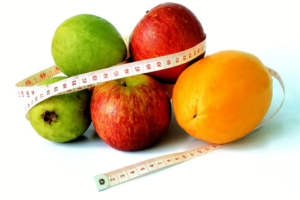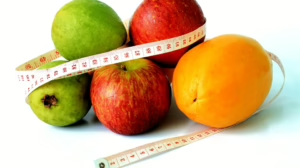Fueling Your Fitness: The Best Nutritional Strategies for Active Lifestyles
In today’s fast-paced world, where fitness and wellness have become primary goals for many, the significance of nutrition cannot be overstated. Whether you’re an elite athlete, a weekend warrior, or someone simply trying to stay active, understanding how to fuel your body effectively is essential. This article will delve into the best nutritional strategies tailored for active lifestyles, ensuring that you not only perform well but also recover and thrive.
Understanding the Basics of Nutrition
Before diving into specific strategies, it’s crucial to have a basic understanding of macronutrients and their roles in fueling your body.
Macronutrients
-
Carbohydrates: Often dubbed the primary fuel source for athletes, carbohydrates are essential for energy production. They are stored in the muscles and liver as glycogen and can be broken down quickly for energy.
-
Proteins: Vital for muscle repair and growth, proteins are composed of amino acids. After intense workouts, protein aids in the recovery process, helping rebuild the muscle fibers that break down during exercise.
-
Fats: While often viewed negatively, healthy fats are an essential energy source, especially during prolonged, lower-intensity activities. They also aid in the absorption of fat-soluble vitamins and support hormone production.
Understanding the balance of these macronutrients tailored to your activity level, type of exercise, and individual goals is key to optimizing performance.
Micronutrients
Apart from macronutrients, vitamins and minerals (micronutrients) play a pivotal role in overall health. They facilitate numerous physiological processes, including energy production, immune function, and muscle contraction. Commonly necessary micronutrients for active individuals include:
- Iron: Essential for oxygen transport in the body.
- Calcium: Important for bone health and muscle function.
- Vitamin D: Aids in calcium absorption and supports the immune system.
Pre-Workout Nutrition
The pre-workout meal is crucial for maximizing performance. The right combination of nutrients can enhance endurance, focus, and strength during your workout.
Timing and Composition
- Timing: Ideally, consume your pre-workout meal 1 to 3 hours before exercising. This allows for digestion while providing you with energy.
- Composition:
- Carbohydrates: Aim for about 1-2 grams of carbohydrates per kilogram of body weight, focusing on complex carbohydrates like oats, whole-grain bread, or fruits.
- Protein: Include a source of lean protein, such as chicken, turkey, or plant-based options like legumes, to help sustain energy and kickstart recovery.
- Fats: Keep fats to a minimum in the pre-workout meal, as they can slow down digestion.
Example Pre-Workout Meals
- Whole grain toast with almond butter and banana.
- Greek yogurt topped with berries and a drizzle of honey.
- Oatmeal cooked with almond milk, topped with nuts and sliced strawberries.
Fueling During Workouts
For extended workouts, especially those lasting longer than an hour, nutrition during exercise becomes essential.
Hydration
Water is crucial for maintaining performance and preventing dehydration. Here are guidelines:
- Before Exercise: Drink 500-600 ml of water 2-3 hours before your workout.
- During Exercise: For workouts longer than an hour, a fluid intake of 200-300 ml every 15-20 minutes is recommended.
- Electrolytes: Consider a sports drink that contains electrolytes if you’re engaging in high-intensity workouts or exercising in hot conditions.
Intra-Workout Nutrition
For long-duration activities, such as marathons or intense cycling sessions, consider consuming carbohydrates in the form of energy gels, sports drinks, or easily digestible snacks.
Example During-Workout Foods
- Sports gummies or chews.
- Energy gels.
- Bananas for quick carbohydrates.
Post-Workout Nutrition
Recovery is where nutritional strategies shine, enabling the body to repair and replenish stores.
Timing is Essential
Aim to consume your post-workout meal within 30-60 minutes after exercising. This window is often referred to as the “anabolic window,” where your body’s ability to absorb nutrients peaks.
Composition
- Carbohydrates: Replenishing glycogen stores is vital. Aim for a 3:1 or 4:1 ratio of carbohydrates to protein.
- Protein: Consuming about 20-30 grams of protein post-workout aids in muscle recovery and synthesis.
Example Post-Workout Meals
- Protein shake with banana and a scoop of protein powder.
- Grilled chicken with quinoa and mixed vegetables.
- Smoothie made with spinach, protein powder, fruit, and nut butter.
Meal Planning for Active Lifestyles
Meal planning is a practical strategy that can lead to better nutritional choices.
Key Steps in Meal Planning
- Assess Your Goals: Determine your fitness goals—are you looking to lose weight, build muscle, or improve endurance?
- Create a Weekly Menu: Choose meals that fit your macronutrient needs and prepare a grocery list.
- Prep in Advance: Cook multiple servings of proteins, grains, and vegetables ahead of time to facilitate quick meal assembly.
- Stay Flexible: Allow for adjustments based on cravings, seasonal ingredients, and schedules.
Snacking Wisely
Incorporating healthy snacks into your day can provide the necessary energy and enhance your performance.
Healthy Snack Options
- Hummus with carrot sticks and cucumbers.
- Greek yogurt with a handful of nuts or seeds.
- Nut butter on apple slices.
Timing of Snacks
- Before Workout: Choose a snack that’s higher in carbohydrates and lower in fat and protein.
- Post-Workout: Focus on high protein and carbohydrates to aid recovery.
Special Considerations
Hydration Tips
Stay aware of your hydration status. Signs of dehydration include:
- Dark yellow urine
- Fatigue
- Dizziness
In addition to plain water, consider including electrolyte-rich beverages, especially after intense or lengthy sessions.
Supplements
While whole foods should always be your primary source of nutrition, certain supplements can support performance if completed thoughtfully and safely.
- Protein Powders: Convenient for post-workout recovery but should not replace whole food.
- Creatine: Known to improve strength and high-intensity performance.
- Branched-Chain Amino Acids (BCAAs): May help reduce muscle soreness and improve recovery.
Individual Needs
Listen to your body. Everyone’s nutritional needs can differ based on factors like age, sex, body composition, and fitness goals. Consulting with a registered dietitian or sports nutritionist can provide personalized advice.
Conclusion
Fueling an active lifestyle involves more than just eating right; it’s about understanding what your body needs to perform, recover, and thrive. From pre-workout meals to post-workout recovery, each aspect of nutrition plays a crucial role in supporting your fitness journey. By prioritizing a balanced diet rich in macronutrients and micronutrients, staying hydrated, and planning your meals, you can optimize your performance and achieve your fitness goals. Remember, nutrition is a powerful tool for enhancing not just athletic performance but overall well-being. So, take charge of your nutrition, and let it empower your active lifestyle.


























Add Comment